Covid in Scotland: What is guidance and what is the law?
- Published
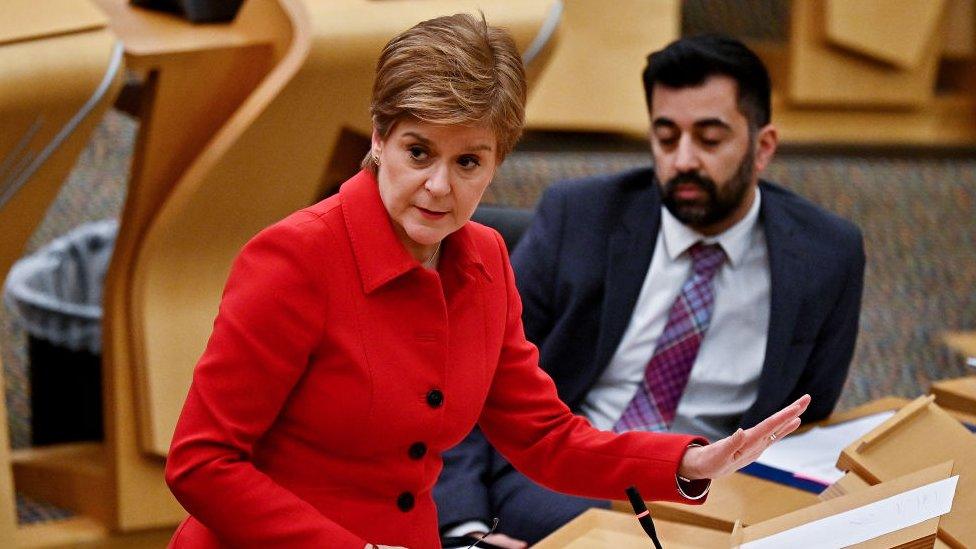
In the first minister's Covid update to Holyrood on Tuesday, she set out a range of measures the Scottish government wanted to take to slow down the transmission of the Omicron variant.
In some cases, she said changes would be made to the law to make these things enforceable. In other cases, she offered guidance to the public and implored them to take precautions. New guidance has also been published on how to make workplaces and businesses safer. So, what's guidance and what is law?
Household mixing - advice
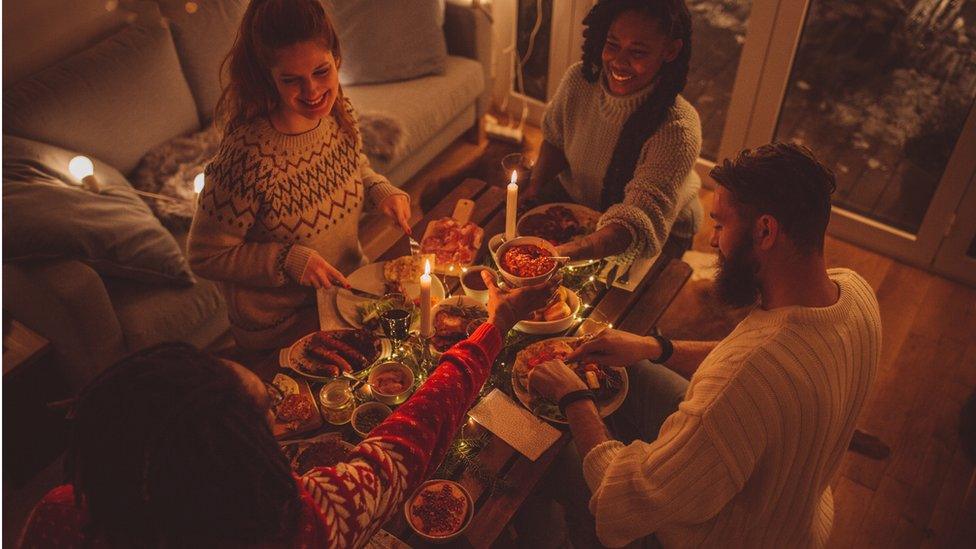
The first minister made what she called a "request" to the public to "reduce as far as possible - to a minimum - the contacts that we have with people from other households". She said this applied to "the run-up to Christmas and in its immediate aftermath".
She said mixing between households was not going to be banned or restricted in law, as happened before. Instead, she said her government would be issuing "strong guidance" to "cut down as far as possible the number of people from outside our own households with whom we interact".
She did ask those who were going to socialise - either at home or in indoor public places - to limit each gathering to a maximum of three households, and for everyone to do a lateral flow test beforehand.
So, it's clear that the advice about socialising before Christmas is just that - advice, and not a legal requirement.
Celebrating Christmas - advice
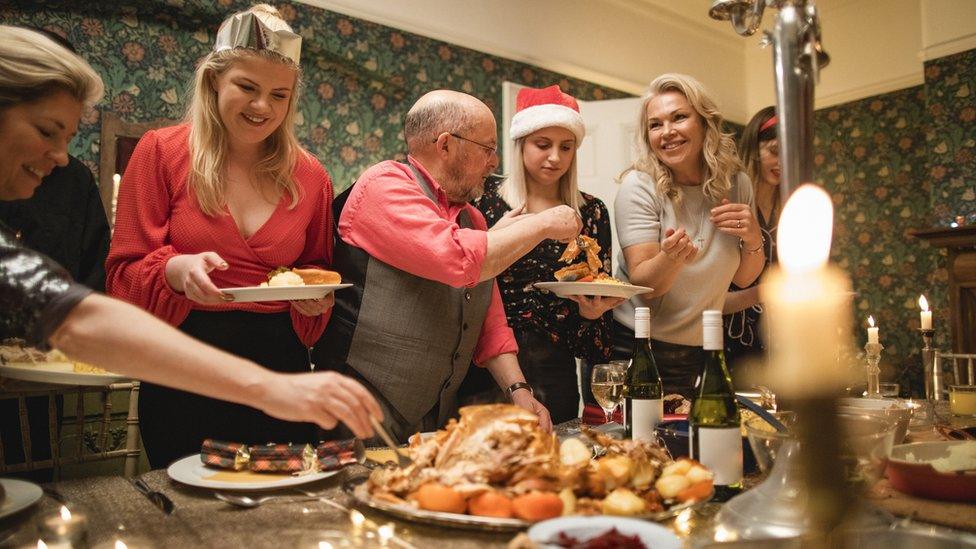
And, in terms of Covid at least, there's no legal restrictions on what you can do to celebrate our second pandemic Christmas.
There's no guidance on how many people are allowed to gather, but the first minister did advise that "keeping celebrations as small as family circumstances allow is sensible".
She said: "We are not asking you to cancel or change your plans, and we are not proposing limits on the size of household gatherings," adding that she was "not asking anyone to cancel Christmas".
But she did say the government would be publishing guidance to help celebrate Christmas safely.
She "strongly advised" that we should all reduce our contacts in advance of and after Christmas.
And you should make sure that everyone in your gathering is vaccinated and has done a test in advance, she added. Keeping rooms ventilated and following strict hygiene rules was also advised.
Retail and hospitality - law
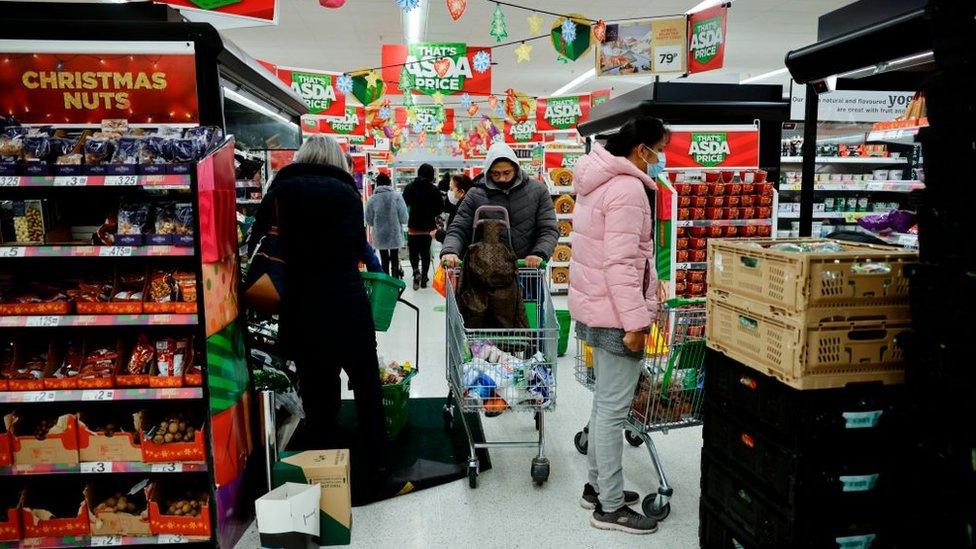
Businesses are being asked to "step up the protections that are in place in their premises".
There will be law changes, to require more from them.
The FM said earlier this week: "We intend to amend regulations to put a legal requirement on people who run businesses or provide services to take measures that are reasonably practicable to minimise the risk of transmission."
She said one example of the kind of measures would be in retail where "a return to the kind of protections that were in place at the start of the pandemic" would be required.
This will "include measures to avoid crowding and bottlenecks... that will include physical distancing, measures to control the flow of customers and protective screens."
The new guidance asks stores to "consider using physical distance floor markings for customer-facing and other common areas... where queues may typically form."
It also asks shops to "consider staggering use to keep numbers to a minimum. This is particularly important at potential areas of congregation like tills and store entry points."
This can include, it says, the construction of physical barriers, queue marshals, and/or restricting the number of people entering the premises at any one time.
One way systems are also recommended.
And for hospitality, the FM said "measures to avoid crowding at bars and between tables," should be implemented, adding "there will be a reminder of the requirement to collect contact details of customers, to help with contact tracing."
The guidance also "strongly encourage[s]" the use of table service, although it notes bar service is now permitted in law.
Working from home - law

The Scottish government said working from home whenever possible will soon become "a requirement that is anchored in law".
The government said it planned to make it clear to employers that enabling staff who were working from home at the start of the pandemic to do so again would be "a legal duty".
Testing and self-isolating - advice
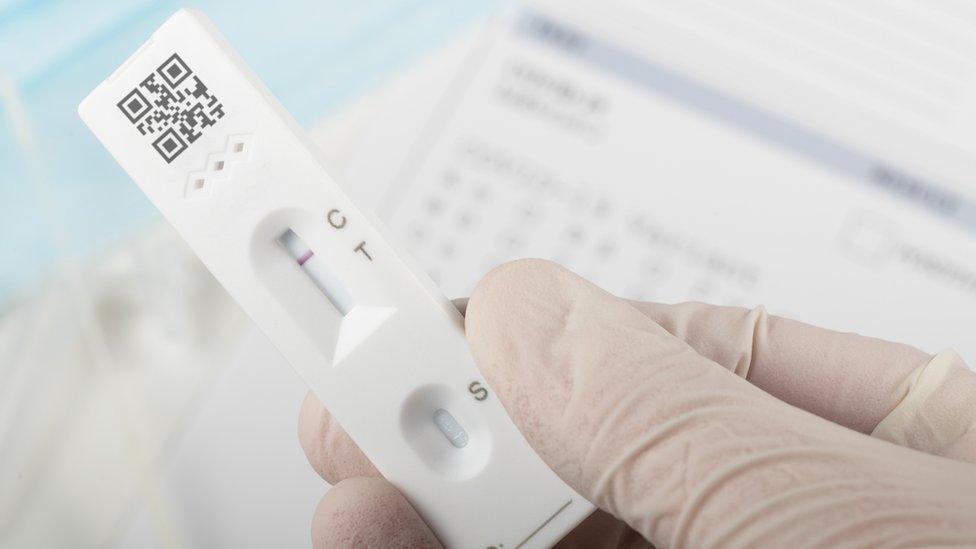
While the new advice is to minimise your contacts as much as possible, if you are going to meet someone the advice is that you should take a lateral flow test "before you go, every time".
The advice on close contacts self-isolating also changed recently. Now, household contacts of a person who tests positive for Covid are being advised to self-isolate for 10 days. That advice applies to everyone in a household, regardless of age, vaccination status or PCR test result.
Businesses and organisations that provide vital services can apply for an exemption to allow essential workers to return to work, subject to their being symptom free and taking certain precautions, including daily lateral flow tests.
The Scottish government says most self-isolation is set out in public health guidance. It is only a legal requirement when it is part of international travel.
Wearing masks - law
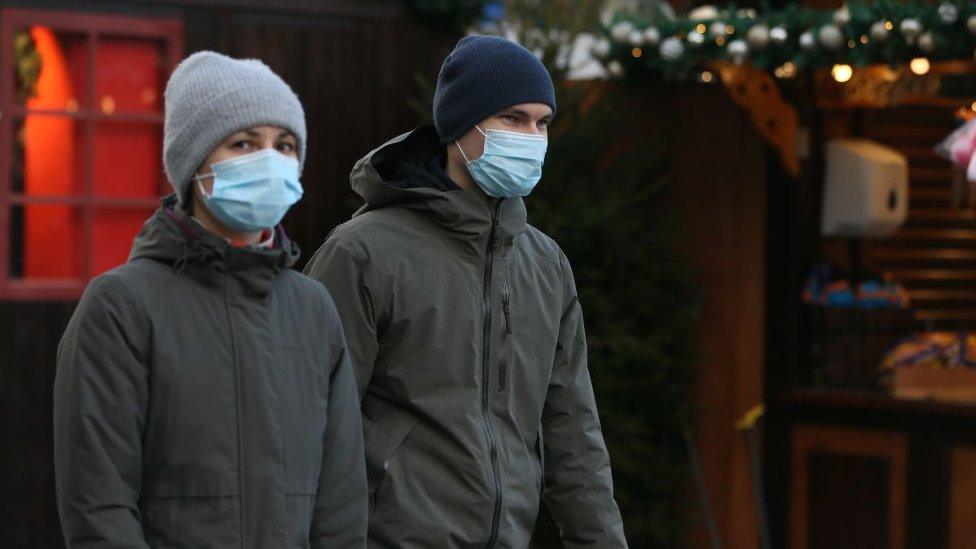
In Scotland, the law states that you should wear a face covering in shops, bars, restaurants, cafes and nightclubs as well as on public transport (although there are some exemptions, external - for example, you don't need to wear it if you're exempt for medical reasons and you can remove it when eating or drinking).
It is an offence not to comply with the requirement to wear a face covering. You could be liable for a fine or the police could issue you with a penalty notice of up to £60.
That's not changing - but Ms Sturgeon has said the government "will reinforce the rules on face coverings".
A Police Scotland spokeswoman stressed that officers have been engaging with the public to "explain the legislation and guidance and encouraged compliance".
She added that "enforcement is used as a last resort only where there is a clear breach of legislation."


Do you have a question about Covid in Scotland? Use the form below to send it to us and we could be in touch.
In some cases your question will be published, displaying your name, age and location as you provide it, unless you state otherwise. Your contact details will never be published. Please ensure you have read the terms and conditions.
If you are reading this page on the BBC News app, you will need to visit the mobile version of the BBC website to submit your question on this topic.

